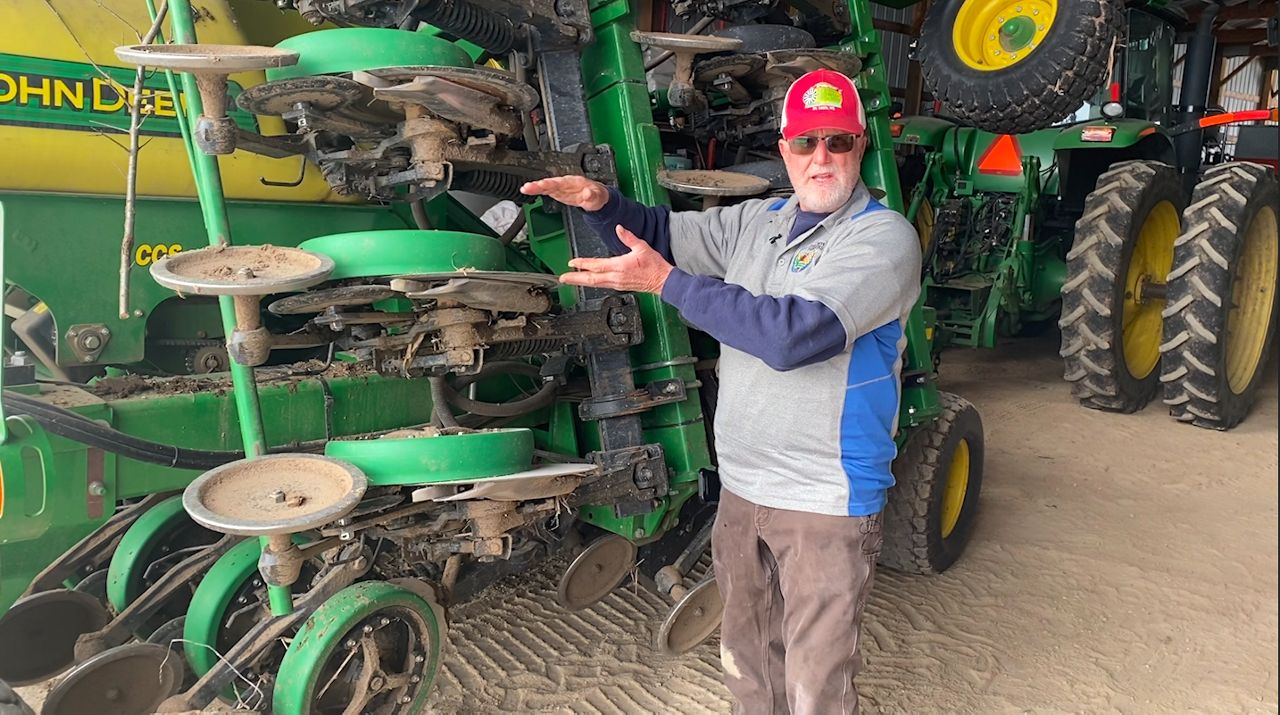JACKSON, Wis. — For farmers across the U.S., November is recognized as “No-Till November.”
And one Wisconsin farmer is sharing why that’s a beneficial practice.
In nearly three decades, Ross Bishop hasn’t tilled his Jackson farm.
It’s a process that also includes planting cover crops, which are crops used to help slow erosion and improve soil health prior to planting the principal crop.
“When you have no till, and you don’t plow it or till it and don’t work it, it creates all of these little conduits or root canals that go down into the soil, and next year, the roots for the corn will find this [cover crop] root and go down that,” said Bishop.
To pull it off, Bishop needs special equipment.
That includes a no-till corn planter, fertilizer tanks and a drill to plant cover crops.
“That cover crop helps protect the soil from getting too warm, from weeds and then it breaks down and becomes fertilizer throughout the season of that corn crop, so there are many benefits,” said Bishop.

As an example, he pulled a radish out of the ground.
“They are searching for nutrients through the soil,” said Bishop regarding the crop.
The radish is one of many cover crops Bishop has planted in his fields. The others include oats, winter peas and barley.
Bishop said these crops will ultimately help prepare the field for what they mainly want to grow: corn.
That’s why, for Bishop, the decision to no-till was an easy one.
“When the crop is growing, we’re seeing the same yields as if you would till and so you are getting your yields that will benefit you in the fall. The biggest thing is erosion and saving fuel and bottom line, you’re saving money,” said Bishop.
And he isn’t stopping the practice of no-till any time soon. He said he’ll continue to do it for as long as he farms, so he can grow strong crops in the years ahead.
